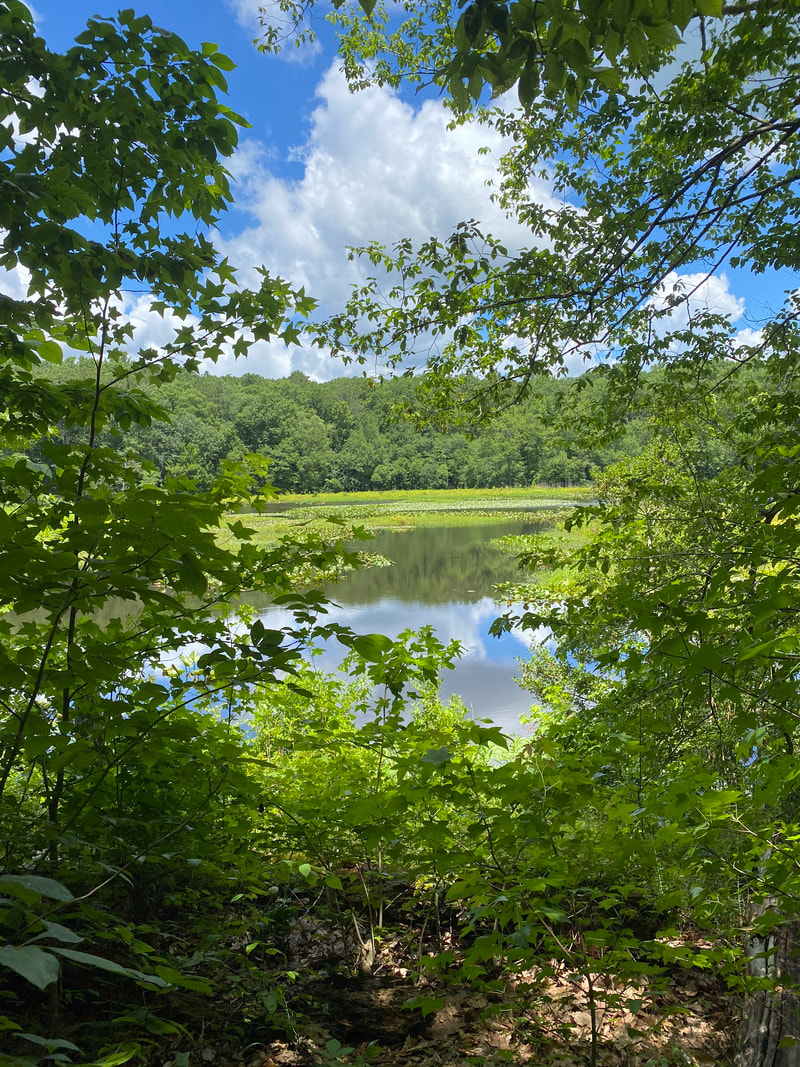|
When I have the opportunity to be outside, I take it. Even if it is starting my morning on the deck with coffee, going for a walk in the neighborhood, or strolling in a local park for a short time. There is something about the color, the smell, and the sounds that is so soothing. I have always wondered if it was my personality that pulled me to nature, or something else. It turns out, I am not the only one who wondered about this.
I recently ran across an article that talked about the science of "your brain on nature." This article inspired me to look at the writings and research behind this idea. Looking back a few hundred years, there are writings that support the belief that nature is good for us. One of the US's most influential landscape designers, Frederick Law Olmsted (who designed Central Park, as well as many others) was significantly influenced by a book written in 1807, by a physician named Johann Georg von Zimmermann. In that book, von Zimmermann talked about and explored how nature could "heal derangements of the mind." (1). Olmsted later adopted this thinking, and even argued to the California government that Yosemite Valley should be protected because "It is a scientific fact that the occasional contemplation of natural scenes of an impressive character ... is favorable to the health and vigor of men and especially to the health and vigor of their intellect.”(2). To return to the recent article I read, the scientific studies do, in fact, substantiate what von Zimmermann wrote in 1807 and Olmsted argued in 1868. It considered studies from the last 10-15 years that focused on how nature (or green areas, as they are known in larger cities) affect our biology. In study after study, the answer is that nature affects our biology in a very positive way. For me, the most notable studies mentioned in the article were Dutch, English, and Canadian studies that measured physical health (by identifying a number of common health issues, like heart disease and diabetes), and compared it to the amount of green space or natural area of the surrounding neighborhoods. These studies controlled for factors such as physical activity and socioeconomic status. Each of these large scale studies found that there were less health issues in neighborhoods with more nature. (3) These studies were so remarkable to me because they took out all factors except exposure to nature, and consistently found positive health effects. From there, I did a search for the effects of nature on our mental health. National Institute of health reviewed studies from the last 15 years that looked at this very idea- and study after study found either physiological or subjective evidence that being in nature improved mental health. (4). This means that some studies actually found reductions in cortisol levels (a biological marker of stress) and/or participants reported feeling better. What I have concluded from this brief study review, inspired by the article, is this- that my morning coffee on the deck is actually restorative, both physically and mentally. For you, the take away is this- nature is a tool or coping mechanism that you can start using right now to feel better- both physically and emotionally. If you are up for it, take a walk outside. If that is too much, find a quiet place with trees or other greenery and sit for awhile. Feeling better isn't about finding one thing to help, it is about developing a tool box of techniques, and nature (in some form) is easily accessed and something you can add right now. If you want to explore other tools, please don't hesitate to contact me. In the meantime, I am going to step outside and give myself a little nature boost. 1. https://www.nps.gov/frla/learn/historyculture/flo.htm 2. https://www.nps.gov/parkhistory/online_books/anps/anps_1b.htm 3. https://www.nationalgeographic.com/magazine/article/call-to-wild 4. https://www.ncbi.nlm.nih.gov/pmc/articles/PMC8125471/
0 Comments
Leave a Reply. |
AuthorI am a therapist- helping people to overcome difficulties and improve their lives. Archives
September 2022
Categories |
Site Links |
| ||||||||||||||
Site powered by Weebly. Managed by FreeLogoServices.com


 RSS Feed
RSS Feed
